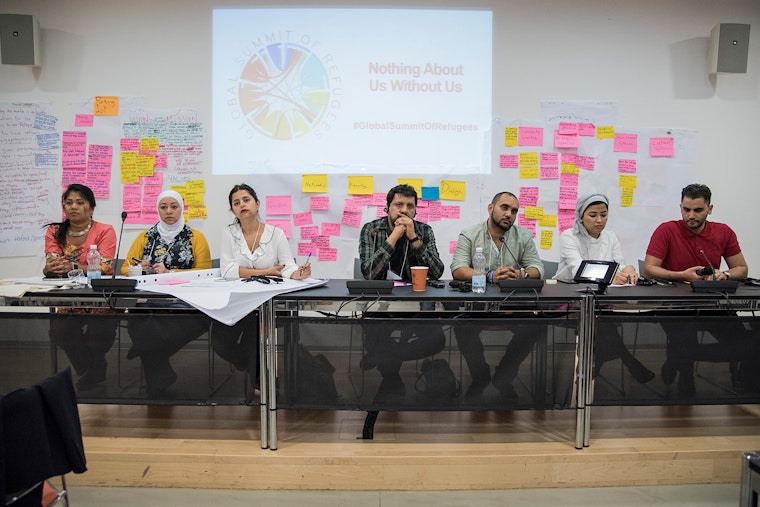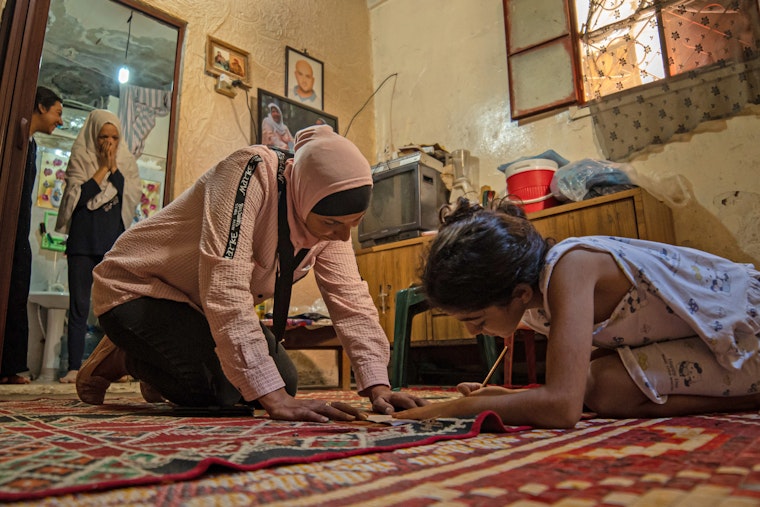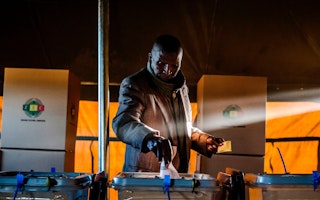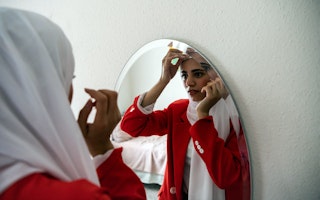Rising from the Ashes of Adversity
By Shaza Alrihawi

In 2011, I was a dedicated staff member at the UN High Commission for Refugees in Syria. I’d spent the last nine years tirelessly advocating for refugee rights, never anticipating how the winds of fate would turn on me as conflict broke out in my homeland. By 2014, the ongoing violence forced me to flee and seek refuge myself. Suddenly, I was no longer providing support; I was the one seeking it.
As a refugee, I experienced firsthand the challenges and uncertainties that displaced individuals face. I struggled to adapt to a new environment, felt the pangs of separation from parents and loved ones, and fought a constant battle to secure basic necessities. Despite these hardships, my spirit remained unbroken, and after coming face to face with the injustices of the system, my spark to fight for refugee justice was reignited.
When I applied for asylum in Germany in 2015, the overcrowded refugee camp placed women and men together in one shared space. This left me and so many other women feeling at risk. But when I requested a safe space, my plea was met with indifference and delay. My persistent calls eventually led to the creation of a small section for unaccompanied females, but nothing was done for women with families, who had to continue sharing the general area.
In light of this and many other hardships I endured, I was determined to reach out to other refugee leaders to create a platform where displaced people could unite, advocate for their rights, and demand a safe haven.
When the broader system was not so welcoming of our efforts, we took matters into our own hands. After being blocked from participating in an NGO consultation in Geneva, we decided to organize the first ever refugee-led summit in June 2018. This gathering of displaced individuals and refugee leaders gave us space to unite in our shared purpose and move forward our unwavering commitment to empower our communities and advocate for our rights.

It was at this pivotal moment that the Global Refugee Network (GRN) was born. The Network now serves as an umbrella organization, uniting refugee-led initiatives across six regions, amplifying the voices of displaced communities, and advocating for their fundamental rights.
Yet we have continued to face significant obstacles establishing the GRN. In November, the Humanitarian Policy Group at the Overseas Development Institute released The Failure to Fund Refugee-led Organizations, a report which found that GRN is hardly alone in these challenges. The research, the first release from a five-year project, provides a comprehensive snapshot of the funding landscape in 2022, details the value refugee-led organizations provide in the field, and underscores a consensus that donors fall short in offering adequate and quality funding—something we at GRN unfortunately know all too well.
GRN’s initial years were marked by significant funding shortages. In the absence of core support, GRN initially relied on indirect funding mechanisms, receiving project grants through partner organizations. While this approach helped financially, it created a sense of dependency and restricted GRN’s ability to operate autonomously and plan for long-term sustainability. The lack of funding also made it difficult to retain and compensate the passionate volunteers who dedicated their time and talent to GRN’s cause. Without the ability to offer stipends or salaries, GRN risked losing these valuable contributors.
The report identified similar situations across the sector, noting that international donors often treat funding of refugee-led organizations as more performative and tokenism rather than as a serious goal. The available data showed just $26.4 million of humanitarian and development funding reached them, with average grant sizes 10 times smaller than those reported to other types of organizations. Even when funding is meant for refugee-led organizations, it is often passed through other groups, with 83 percent of funding going through at least one intermediary—meaning less money reaches organizations on the ground and requiring even more complicated reporting procedures.
Complications within the system made it even more difficult for us at GRN. As refugees, the founders encountered difficulties in fulfilling the stringent requirements for foundational needs, such as opening bank accounts. This necessitated the engagement of legal counsel, further straining the organization’s limited resources. The report noted this as well, highlighting that funders tend to consider refugee-led organizations as “too risky” and pile on such requirements, without evidence that such restrictions are actually needed or valuable.
Yet despite the complex systems of reporting from refugee-led organizations, the report also found it difficult to track funding. Government donors and UN agencies especially have insufficient and opaque systems, making it nearly impossible to understand what exactly is happening—and therefore how to improve.
Despite these impediments, refugees are driven by an unwavering commitment to our cause and continue to push forward. We at GRN persevered, and after multiple attempts, won a five-year award from the EU, successfully paving our path to the future.
Core funding enabled us to expand operational capacities and make a transformative impact. We hired dedicated staff members who were able to follow up on our initiatives more regularly, and were able to plan proactively for the future rather than scrambling to react to whatever needs were most urgent in the moment. We focused on representing refugee leader voices, sponsoring 10 leaders at the Global Refugee Forum and ensuring meaningful engagement of refugee voices in high level forums like COP28. Core funding became our megaphone for change.
Refugee-led organizations like the Global Refugee Network are a beacon of hope and resilience, a voice for the voiceless, starring refugees who become leaders for our cause. The evidence shows that investing in us more effectively supports refugee communities as a whole. In line with the Overseas Development Institute report, we call on donors to prioritize direct funding for established refugee-led organizations, support intermediaries that empower them, streamline funding processes, enhance transparency, and allocate a larger proportion of funding specifically for these groups. We are a testament to the indomitable spirit that can rise from the ashes of adversity; it’s high time that funders acknowledge support this crucial role.
Shaza Alrihawi is co-founder of the Global Refugee-Led Network and Global Independent Refugee Women Leaders.


